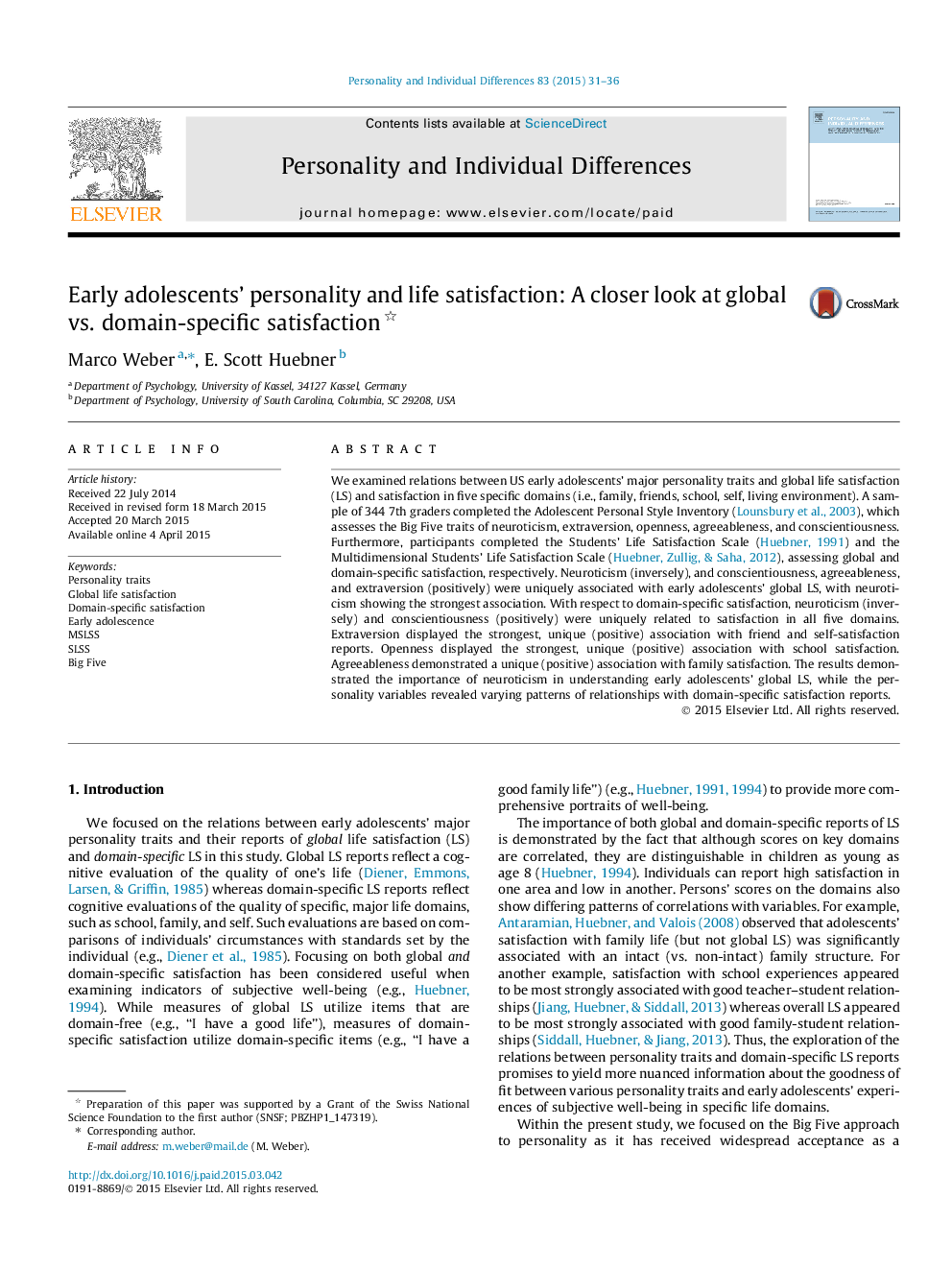| Article ID | Journal | Published Year | Pages | File Type |
|---|---|---|---|---|
| 890128 | Personality and Individual Differences | 2015 | 6 Pages |
•Big Five traits are related to early adolescents’ global and domain-specific satisfaction.•Neuroticism was the strongest predictor of global life satisfaction.•Different traits were associated with different domain-specific satisfaction reports.
We examined relations between US early adolescents’ major personality traits and global life satisfaction (LS) and satisfaction in five specific domains (i.e., family, friends, school, self, living environment). A sample of 344 7th graders completed the Adolescent Personal Style Inventory (Lounsbury et al., 2003), which assesses the Big Five traits of neuroticism, extraversion, openness, agreeableness, and conscientiousness. Furthermore, participants completed the Students’ Life Satisfaction Scale (Huebner, 1991) and the Multidimensional Students’ Life Satisfaction Scale (Huebner, Zullig, & Saha, 2012), assessing global and domain-specific satisfaction, respectively. Neuroticism (inversely), and conscientiousness, agreeableness, and extraversion (positively) were uniquely associated with early adolescents’ global LS, with neuroticism showing the strongest association. With respect to domain-specific satisfaction, neuroticism (inversely) and conscientiousness (positively) were uniquely related to satisfaction in all five domains. Extraversion displayed the strongest, unique (positive) association with friend and self-satisfaction reports. Openness displayed the strongest, unique (positive) association with school satisfaction. Agreeableness demonstrated a unique (positive) association with family satisfaction. The results demonstrated the importance of neuroticism in understanding early adolescents’ global LS, while the personality variables revealed varying patterns of relationships with domain-specific satisfaction reports.
